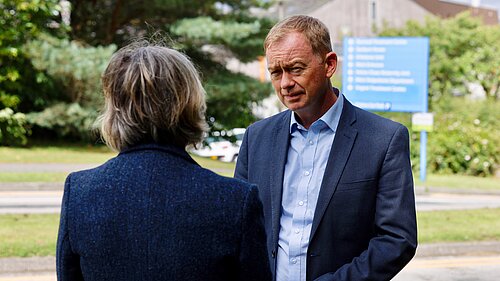MP calls for Government action to tackle bed blocking crisis in Cumbria’s hospitals

Cumbrian MP Tim Farron has challenged ministers at the Department for Health to tackle bed blocking in hospitals across the county.
New figures from the NHS, analysed by Tim Farron’s office, shows that hospitals in the Morecambe Bay area were unable to discharge nearly three quarters of their patients every day, on average, last month.
On an average night, 72 per cent of patients who had been identified as ready to be discharged that day were still occupying a bed at midnight, tying up on average 184 beds each night.
Meanwhile in hospitals in North Cumbria during October, an average of 92 patients (61%) who were fit to be discharged were taking up beds each day.
To solve the problem, Tim has called for the Government to increase pay for care workers and to tackle the housing crisis to give those staff an affordable place to live.
Speaking during a debate on the King’s Speech in the House of Commons last week, Tim said: “With many people above the average age in our community, it is no accident that 32% of our hospital beds were blocked earlier this year. Why was that? It is because there are not enough carers, and we do not pay those carers enough or treat them well enough.
“The consequence is the clogging up of our national health service from top to bottom - from A&E and ambulance response times to GP surgeries and everything else. Until we tackle the care crisis, we will not tackle the NHS crisis.
“In a community like ours, one of the major reasons that nearly a third of the beds were blocked is the simple fact that there are not enough homes for people on average or below average incomes to live in. If we do not provide homes in communities like ours - by tackling the Airbnb crisis, the second homes crisis and the lack of social rented homes - we will have no workforce in care, in health or in any part of our public sector.
“Until the Government recognise the need to support those who work, and can potentially work, in health and social care, mental and physical health, we will continue to live in a crisis, particularly in rural communities like Westmorland.”
